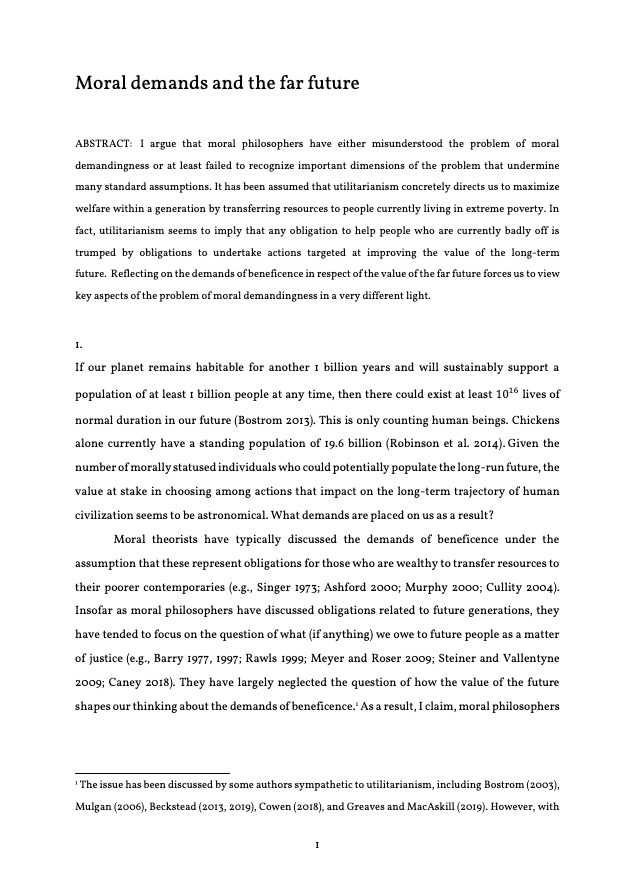Moral demands and the far future
Andreas Mogensen (Global Priorities Institute, Oxford University)
GPI Working Paper No. 1-2020, published in Philosophy and Phenomenological Research
I argue that moral philosophers have either misunderstood the problem of moral demandingness or at least failed to recognize important dimensions of the problem that undermine many standard assumptions. It has been assumed that utilitarianism concretely directs us to maximize welfare within a generation by transferring resources to people currently living in extreme poverty. In fact, utilitarianism seems to imply that any obligation to help people who are currently badly off is trumped by obligations to undertake actions targeted at improving the value of the long-term future. Reflecting on the demands of beneficence in respect of the value of the far future forces us to view key aspects of the problem of moral demandingness in a very different light.
Other working papers
Maximal cluelessness – Andreas Mogensen (Global Priorities Institute, Oxford University)
I argue that many of the priority rankings that have been proposed by effective altruists seem to be in tension with apparently reasonable assumptions about the rational pursuit of our aims in the face of uncertainty. The particular issue on which I focus arises from recognition of the overwhelming importance…
Are we living at the hinge of history? – William MacAskill (Global Priorities Institute, Oxford University)
In the final pages of On What Matters, Volume II, Derek Parfit comments: ‘We live during the hinge of history… If we act wisely in the next few centuries, humanity will survive its most dangerous and decisive period… What now matters most is that we avoid ending human history.’ This passage echoes Parfit’s comment, in Reasons and Persons, that ‘the next few centuries will be the most important in human history’. …
Crying wolf: Warning about societal risks can be reputationally risky – Lucius Caviola (Global Priorities Institute, University of Oxford) et al.
Society relies on expert warnings about large-scale risks like pandemics and natural disasters. Across ten studies (N = 5,342), we demonstrate people’s reluctance to warn about unlikely but large-scale risks because they are concerned about being blamed for being wrong. In particular, warners anticipate that if the risk doesn’t occur, they will be perceived as overly alarmist and responsible for wasting societal resources. This phenomenon appears in the context of natural, technological, and financial risks…

